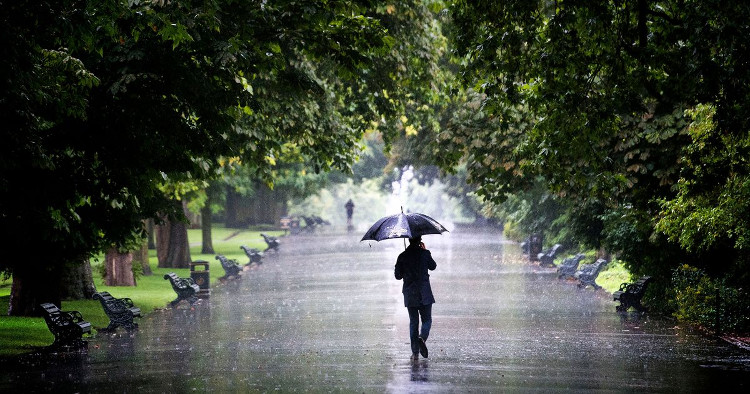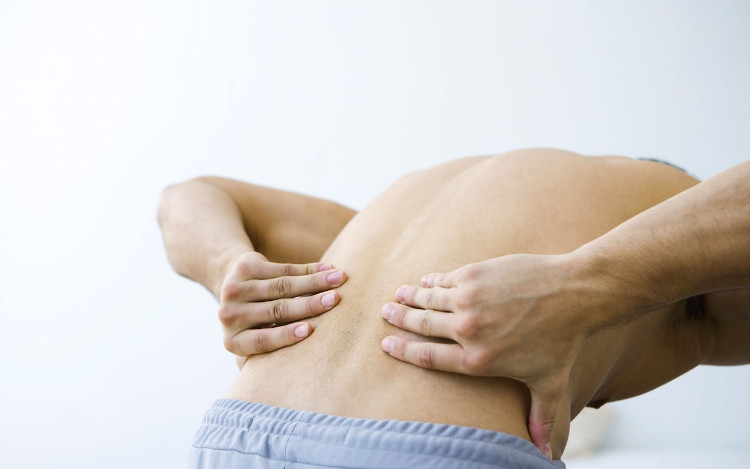Harvard scientists resolve the
After studying 11 million medical records, scientists at Harvard Medical School have proved that it has nothing to do with rain.
The rumor that joint pain often occurs when it rains for centuries has been countered by recent research by scientists at Harvard.
About 2,500 years after the Greeks first claimed that there was a link between weather and pain, scientists finally pointed out that this belief was not accurate.

Rain doesn't make you ache in your joints.
In the largest study so far, scientists have looked at more than 11 million medical records of 1.5 million US retirees from 2008 to 2012, in search of correlations between rain and numbers. case of joint pain was recorded. But they did not find any connection.
Researchers believe that the scale of this study is so great that no mistakes can happen.
The study's lead author, Professor Anupam Jena, of the Harvard School of Health Policy, said: "It's hard to prove something wrong."
"During intense flooding, if there is any record of the number of mutations in the joint, we will find it. Although it is only a small sign that the weather has affected But in fact, we didn't find anything. "
"No matter how we look at the data, we do not see any correlation between precipitation and the number of visits to a joint or back pain. Thus, joint pain and back pain. are unreliable weather forecasters , 'added Professor Anupam Jena.

Back pain whether it rains or not.
The concept that the joints are painful and the gloomy weather that always goes together has existed since ancient times. Hippocrates - The man who is considered the father of modern medicine has confirmed this in 'On Airs, Waters and Places' (air, water, and place of life). He said that it is possible to rely on medical signs to predict the changing weather of the year and the study of wind power can know the effects of weather on health.
This belief has existed for centuries until now, fueled by a combination of folk oral culture and small studies that have yielded mixed results.
A study on this issue is also underway at the University of Manchester. According to initial results published last year, on sunny days from February to June, people suffering from chronic pain will feel better. However, when the weather is wet and murky in June, the pain rises again.
Scientists have speculated that changes in air pressure can cause fluid in the joints to move, causing pain, especially for people with arthritis. Low pressure also causes rain, so people can mistakenly rain can cause pain.

Joint pain is not related to rain.
However, when analyzing the relationship between the number of people visiting doctors with rainwater levels from the National Oceanic and Meteorological Administration (NOAA), they found no relationship. In general, the number of people visiting doctors because of pain in rainy days is only 6.35%, while the number of people visiting doctors for similar reasons on dry days accounts for 6.39%.
Professor Jena said the human brain is very good at finding causes, even if they don't exist.
If people think their knees hurt when it rains and if their knees don't hurt, they will forget this immediately. But if their knees hurt when it rains, every mistake will be blamed on the rain.
"As a doctor, we are sensitive to what patients say. Pain is painful whether it is raining or not," he added. "But the important thing is that at the clinical level, it doesn't seem to appear and change with the weather . "
- 15 things are more difficult than passing Harvard University
- Harvard University creates bacteria capable of absorbing CO2 and producing energy
- Harvard builds arms against sexual harassment
- Harvard server is hacked, data spread on BitTorrent
- Cover the sun to block ... global warming
- Share your genetic map with the world
- Harvard experts share secrets to always win when debating
- Harvard professor shows you how to detect the fastest liar
- Harvard's HIV vaccine was initially successful on humans
- Correct this puzzle in 5s, you are 50% better than Harvard students
- Let the computer run faster
- There are 7 different forms of intellect, what kind of intelligence are you?
 Green tea cleans teeth better than mouthwash?
Green tea cleans teeth better than mouthwash? Death kiss: This is why you should not let anyone kiss your baby's lips
Death kiss: This is why you should not let anyone kiss your baby's lips What is salmonellosis?
What is salmonellosis? Caution should be exercised when using aloe vera through eating and drinking
Caution should be exercised when using aloe vera through eating and drinking